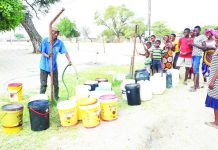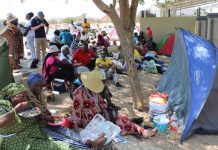Africa-Press – Namibia. The Institute for Public Policy Research (IPPR) has cautioned that Namibia’s oil and gas sector may create fewer jobs than government projections suggest, citing transparency and consultation concerns.
This comes after IPPR director Graham Hopwood has raised concerns about the optimism created by the government around the sector without backing it up with sufficient data.
“As far as the oil and gas government aspiration is concerned, the government seems to have overly set the tone that more jobs will be created when in actual fact it is not entirely true.
“Perhaps the only aspect one could think of is the levy collection which the government will be more focused on, and hopefully they can use this to create jobs,” he says.
Namibia’s oil and gas industry has been projected to create over 12 000 jobs over the next 30 years, with the construction phase alone expected to generate 5 000 jobs.
Hopwood says given the uncharted territory, pushback from the general public remains due to various factors such as a lack of transparency and consultation.
Research conducted by IPPR research associate Martha Nangolo and Dietrich Remmert in five regions, dated 23 October, indicates that many stakeholders had clear hopes of economic benefits from the sector.
The research involved the Kavango West, Kavango East, ||Kharas, Erongo and Khomas regions. Many residents expressed concerns around governance shortfalls, with stakeholders also voicing concern that the oil and gas sector would negatively impact other sectors and communities, as well as competition for scarce resources.
“Some of the findings that came out is that people were worried about the lack of consultation in terms of public consent and environmental pollution,” Nangolo says.
Remmert says one of the challenges the sector is faced with is terminology and the use of language in explaining oil and gas ventures.
He says this fails to consider the general public.
He cautions that such ambiguity could spark incorrect interpretation and urges those involved in policymaking to ensure consultation is done in a simple way to ensure understanding and avoid resistance.
For More News And Analysis About Namibia Follow Africa-Press






